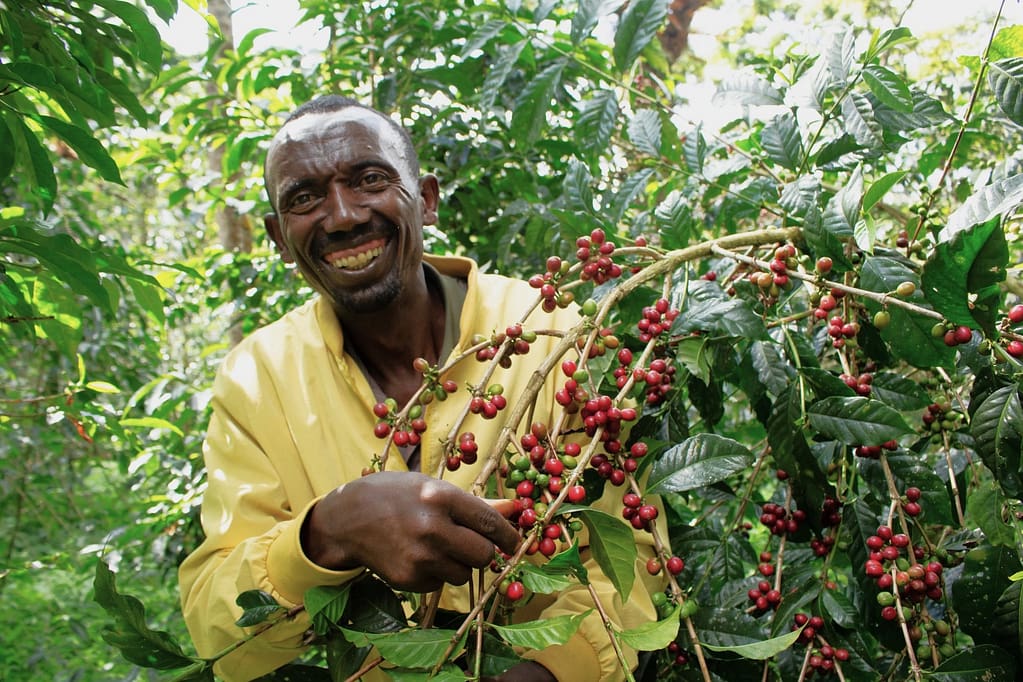[[{“value”:”

A three-year Farm Africa project has been found to have not only protected natural forests in Ethiopia’s Ilu Ababor Zone but also improved the livelihoods of 4000 people in the region through sustainable coffee production and alternative income sources.
The Coffee for conservation – Protecting forests by growing a thriving forest value chain report has charted the three-year project’s impact on the region.
The project was implemented in partnership with government agencies and worked closely with local Participatory Forest Management Cooperatives (PFMCs) to develop economic incentives for 15 forest-dependent communities living in conservation hotspots.
Key outcomes include a 43 per cent reduction in annual deforestation rate alongside a 45 per cent real value increase in forest coffee income among coffee producers.
This also helped bolster a 15 per cent increase in average household incomes (including non-coffee producers) and a shift in household dietary diversity category from ‘medium’ to ‘high’.
Chairman of Abdi Bori PFMC Mulugeta Tafesse says the results of the Farm Africa report show sustainability and profitability can go hand-in-hand.
“The Forest Coffee project shows that protecting nature doesn’t have to mean sacrificing income. With ingenuity we can grow profitable new income streams rooted in production methods that restore and protect our ecosystems,” Tafesse says.
“This integrated model of conservation and business development offers a powerful blueprint for other forested regions facing economic and ecological challenges.”
Supporting community-led businesses cultivate and sell Arabica coffee was central to the effort. The plant thrives in the shaded, natural forest habitats in Ilu Ababor.
Farm Africa and local partners helped smallholder farms enhance the quality and marketability of forest coffee while also helping to improve the productivity of agricultural land, develop other forest-friendly income streams and improve institutional capacity in natural resource management.
“Thanks to the knowledge we acquired, we are now skilled and capable of independently managing our coffee business without relying on external support,” Tafesse says.
The full Coffee for conservation learning report can be viewed here.
The post Coffee sustainability, profitability improved through Farm Africa program appeared first on Global Coffee Report.
“}]]


